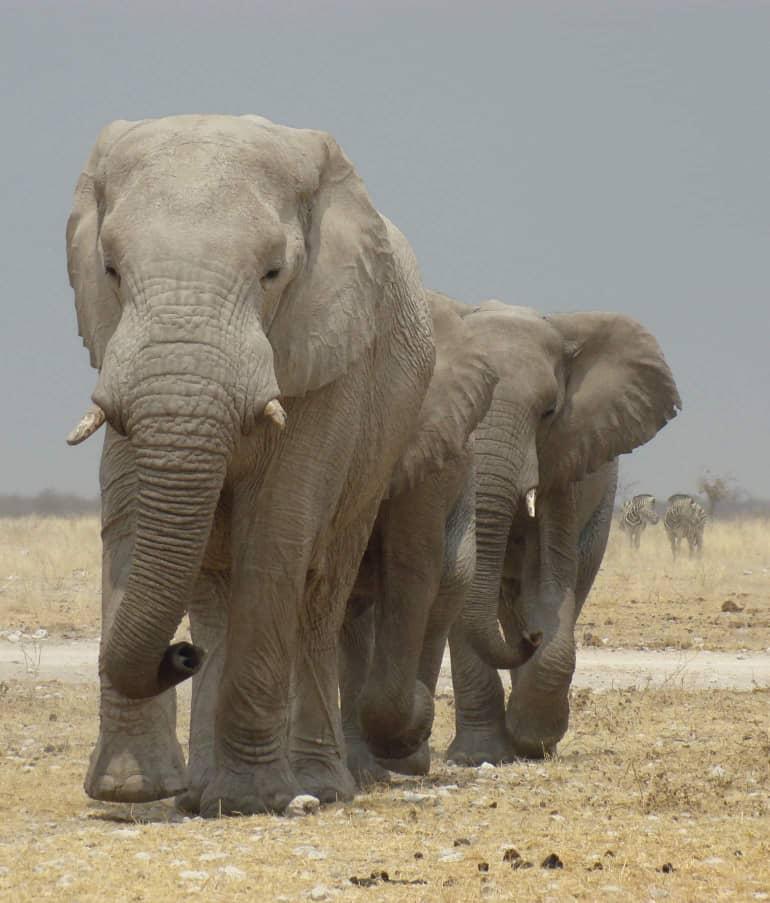Africa-Press – Namibia. THE elephant population in Namibia has from 1995 steadily seen an increase from 7,500 to 23,736 this year. This was revealed by Minister of Environment, Forestry and Tourism, Pohamba Shifeta, at the launch of wildlife management plan, conservation strategies and handover of equipment to the anti-poaching unit at the Bwabwata National Park.
Shifeta said that that elephants have not just increased in numbers, but have also expanded in range and are now found in areas from which they went extinct more than 70 years ago.
“Obviously, the conservation efforts have contributed to the increase in numbers and range,” he said.
He indicated that the prolonged drought experienced since 2012 in some parts of north-western Namibia, amongst others, also contributed to elephants moving out of their traditional areas into new areas where they are not always tolerated.
Shifeta also launched the Land Use and Development Plan of the Bwabwata National Park and the Wildlife Corridor Strategy for Zambezi Region, which is intended to provide guidance and framework for elephant conservation and management in Namibia following its establishment in 2019.
He indicated that as part of this process, all stakeholders, including the communal farmers, freehold farmers, traditional authorities, line ministries and other relevant government agencies, civil society organisations, communal area conservancies, and farmers associations, were consulted to provide input on the development of a national strategy to guide elephant conservation over the next ten years.
“We therefore believe that we have a plan that carries the blessing of all stakeholders who are influenced and impacted by elephants,” he added.
Shifeta explained that elephant conservation and management related challenges and opportunities were identified jointly with stakeholders, and management measures and actions were proposed for inclusion in the national elephant conservation and management plan.
While handing over equipment and materials to the anti-poaching units, Shifeta stated that the ministry is committed to addressing the challenges so that the anti-poaching operations are conducted in an efficient and effective manner.
“We have succeeded in purchasing 500 mattresses and 13 fridges for the anti-poaching units in Bwabwata and surrounding areas, Etosha National Park and the Palmwag area in Kunene Region,” he noted.
The ministry is also expected to hand over 500 tents, 50 torches, 14 fridges and fence materials to be used for the protection of the anti-poaching camps from predators.
Shifeta assured members of the anti-poaching unit that all their other requests have been taken serious and solutions are being found to address them.
“We also remain committed to finding solutions to the provision of daily subsistence and travel allowances or camping allowances to members of the anti-poaching units,” he concluded.
For More News And Analysis About Namibia Follow Africa-Press






